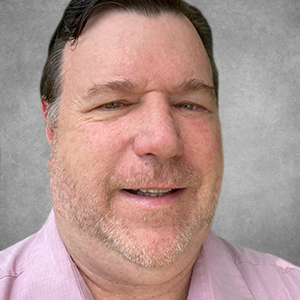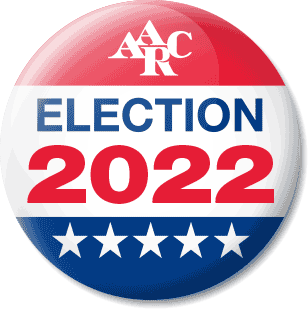Director-at-large
Ed Borza
Assistant Professor, Respiratory Care
University of Hawaii- Kapi’olani Community College
Member Since: 1983
AARC Activities:
- AARC Bylaws Committee 2021-22, Chair-elect ’21
- AARC Elections Committee, Chair 2019
- AARC Elections Committee member 2017-18
- Member AARC PACT, 2014-21
- Member AARC Neonatal-Pediatrics Specialty Section 2003-21
- Member AARRC Education Specialty Section 2007-21
HOD Activities:
- Delegate, Hawaii Society for Respiratory Care, 2005-08, 2013-16, 2019-21
- Chair, Delegate Assistance, 2008
- Co-Chair, Student Mentorship, 2008
- Member Student Mentorship, 2013-16, 19-21
- Member Policy & Guide Committee, 2019-21
Affiliate Activities:
- President, Hawaii Society for Respiratory Care, 1994, 2010
- President-Elect, Hawaii Society for Respiratory Care, 1993, 2009
- Vice President, Hawaii Society for Respiratory Care, 2002
- Secretary, Hawaii Society for Respiratory Care, 2012
- Director-at-large, Hawaii Society for Respiratory Care, 1996-97, 2000-01, 2003-04
- Co-Chair Government Affairs, leading to State licensure, 2008-2013
- Chair Elections, 2020, 2013-16, 2005-07
- Chair Bylaws 2021, 2011-13
Related Organizations:
- Advanced Cardiac Life Support Instructor, American Heart Association
- Pediatric Advanced Life Support Instructor, American Heart Association
- Neonatal Resuscitation Program Instructor-Mentor, American Academy of Pediatrics
- Member National Board for Respiratory Care
- National Asthma Educator Certification Board (AE-C)
Education:
- California College for Respiratory Therapy, RT technician Certificate (CRTT), 1984
- Kapiolani Community College, AS degree Respiratory Therapist (RRT), 1993
- University of Hawaii-West O’ahu, BA degree Healthcare Administration, 1996
- RRT-NPS 1991
- CPFT 2000
- RRT-ACCS 2015
Elections Committee Questions:
What do you see as the biggest challenge facing the AARC and what do you recommend to address it?
Membership. The AARC only represents about 30% of practicing RTs in this country. In order to have influence over regulations and governmental recognition of our profession we need to increase those numbers. I’d work to get new therapists involved in the AARC and show them the value of membership. I also believe we need to do a better job of retaining members, listening to members and attempting to meet their expectations.
Healthcare is changing more rapidly than ever. What do you feel is the main issue Respiratory Care Practitioners are facing, and what are the key solutions that you feel should be addressed to support our profession?
The need for an expanded role for Respiratory Care Practitioners. Advanced Practice credentials need to be developed and taught and every effort needs to go into advocating for RTs as Disease managers and Physician extenders. Much work remains to be done in education, licensing and regulation in order for this to become widespread and established.
Role-Specific Questions:
Your role as Director-at-large is to represent the general AARC membership. If given the opportunity to represent, how would you use your skills and experience to advance and advocate for the respiratory care profession?
I’ve been a clinician in most care settings, been a supervisor, an educator and a diagnostician. I bring a wide variety of experience to the BOD and would use that experience to strengthen the profession and the Association. I can relate to the bedside RT, the Neo/Peds RT, ICU specialists and diagnostics professionals. I understand students and their needs as well as the 25-year veteran and the new RT orienting in the NICU. I’ve worked nights and done transport, home care and PFTs. I’ve also been very involved in lobbying efforts at the State and Federal level. I will use my experience to advocate for RTs and the profession and to ensure the continued relevance of the profession well into the future.







